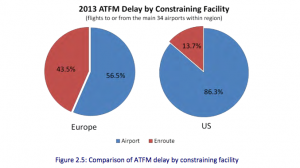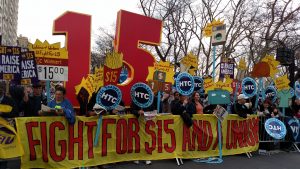The other day I was watching Dave Jones, a video blogger that I find entertaining and informative. His blog, the EEVblog, is catnip for nerds who like to solder stuff and use oscilloscopes.
Recently he did a short segment where he answered a question from a student who was upset that his teacher told him that EE was perhaps not a great field for job security, and he sort of went on a colorful rant about how wrong the professor is.
The professor is right.
Electrical engineering employment is indeed in decline, at least in the USA, and I suspect, other development countries. It’s not that EE skills are not helpful, or that understanding electronics, systems, signals, etc, are not useful. They are all useful and will continue to be. But I think more and more of the work, in particular, the high paying work, will migrate to software people who understand the hardware “well enough.” Which is fine. The fact is that EEs make good firmware engineers.
I think someone smart, with a solid EE background and a willingness to adapt throughout your entire career, should always find employment, but over time I suspect it will be less and less directly related to EE.
I mostly know Silicon Valley. Semiconductor employment is way down here. Mostly, it is through attrition, as people retire and move on, but nobody is hiring loads of young engineers to design chips anymore. It makes sense. Though chip volumes continue to grow, margins continue to shrink, and new chip design starts are way down, because “big” SOCs (systems on chip) with lots of peripherals can fill many niches that used to require custom or semi-custom parts.
I suspect that the need for EEs in circuit board design is also in decline. Not because there are fewer circuit boards, but because designing them is getting easier. One driver is the proliferation of very capable semiconductor parts with lots of cool peripherals is also obviating a lot of would-have-been design work. It’s gotten really easy to plop down a uC and hook up a few things over serial links and a few standard interfaces. In essence, a lot of board design work has been slurped into the chips, where one team designs it once rather than every board designer doing it again. There might be more boards being designed than ever, but the effort per board seems to be going down fast, and that’s actually not great for employment. Like you, I take apart a lot of stuff, and I’m blown away lately not by how complex many modern high volume boards are, but how dead simple they are.
The growth of the “maker” movement bears this out. Amateurs, many with little or no electronics knowledge, are designing circuit boards that do useful things, and they work. Are they making mistakes? Sure, they are. The boards are often not pretty, and violate rules and guidelines that any EE would know, but somehow they crank out working stuff anyway.
I do hold out some hope that as Moore’s law sunsets — and it really is sunseting this time — there will be renewed interest in creative EE design, as natural evolution in performance and capacity won’t solve problems “automatically.” That will perhaps mean more novel architectures, use of FPGAs, close HW/SW codesign, etc.
Some statistics bear all this out. The US Bureau of Labor Statistics has this to say about the 2014-2024 job outlook for EEs:
http://www.bls.gov/ooh/architecture-and-engineering/electrical-and-electronics-engineers.htm#tab-6
Note that over a 10 year period they are predicting essentially no growth for EE’s at all. None. Compare this to employment overall, in which they predict 7% growth.
One final note. People who love EE tend to think of EEs as the “model EE” — someone clever, curious, and energetic, and who remains so way for 40+ years. But let’s remind ourselves that 1/2 of EEs are below median. If you know the student in question, you can make an informed assessment about that person’s prospects, but when you are answering a generic question about prospects for generic EEs, I think the right picture to have in mind is that of the middling engineer, not a particularly good one.
I’m not saying at all that EE is a bad career, and for all I know the number of people getting EE degrees is going down faster than employment, so that the prospects for an EE graduate are actually quite good, but it is important for students to know the state of affairs.




